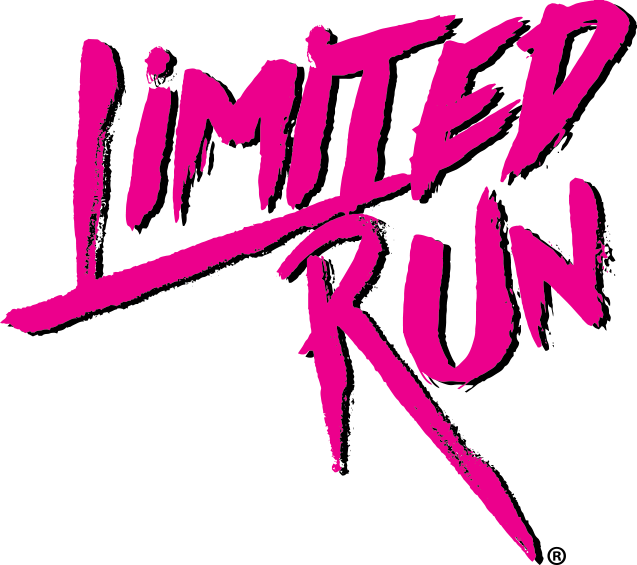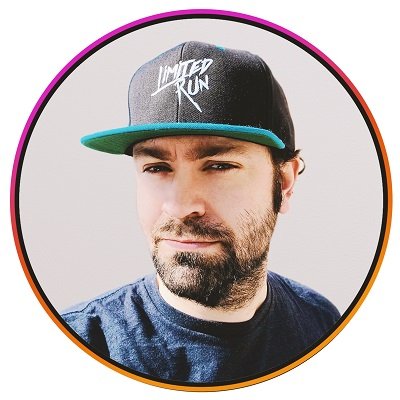
This week, Limited Run Games celebrated its sixth anniversary of producing special edition physical releases of digital-first titles. Founded in 2015 by Douglas Bogart and Josh Fairhurst, the collector’s boutique has built a reputation as a go-to destination for hobbyists and connoisseurs looking to get their hands on limited, one-of-a-kind items.
“We’re really one of the only companies out there producing specialized collector’s editions for beloved classics and digital-only releases, like what we did with Scott Pilgrim vs. the World, or our recent collector’s editions for The Secret of Monkey Island and Quake,” Bogart, who also serves as the company’s COO, told GameDaily.
Limited Run’s first release was Breach & Clear back in October of 2015. Since then, the company has produced a number of highly successful physical releases, including Guacamelee!, Iconoclasts, and Axiom Verge, the latter of which was the subject of a lawsuit in 2019.
The success of Limited Run Games’ physical releases of digital-only titles has led the company to branch out into other collector’s items: it has printed vinyl records of some beloved game soundtracks, a fair bit of apparel, and even retro-style game controllers. This, Bogart said, has helped broaden Limited Run’s appeal among the gaming public.
“I think our growing community sees the same appeal we saw when we first created the company,” he explained. “But it’s not just the games; we are big collectors ourselves, and with that comes an interest in everything ranging from vinyl soundtracks and bespoke collectibles. At the end of the day, we just want to make cool things that we want to own, too. It’s worked out well for our company and fans.”

More than that, though, is the company’s standing as a sort of aficionado of history, a beacon of curation in an increasingly-digital gaming landscape. As the reliance on physical media has lessened over the years, the subject of video game preservation has become a topic of increased conversation. Many have decried the temporary nature of digital formats, and a handful of organizations have dedicated themselves to archiving and preserving the industry’s history.
For Bogart, this is central to the business of Limited Run Games.
“If you consider games as art…then I think it makes a bit more sense when you think about physical games and the idea of preservation and ownership,” he explained. “Even if you consider illegal alternatives, like pirated ROMs, those games still only exist in a digital space. What happens when those torrent files go down? And what happens if the PlayStation Network goes down, or a digital-only game is no longer for sale years from now? In many ways, as a collector, a physical version is the only sure way to know that you own this game in a playable form as intended by its developers.”
Indie developers in particular are susceptible to the ephemeral nature of the digital landscape, despite many of gaming’s most influential titles emerging from that sector. Bogart said that he feels honored to have the opportunity to work with indies on preserving their legacy, and provide them some semblance of reassurance that their work will survive long into the future.
It’s not just indies and recent releases that Limited Run trades in, however. Over the years, the company has reissued a number of historically beloved titles, some of which were thought lost to time. One recent example is Doom 64, a title that Limited Run CEO and co-founder Josh Fairhurst said was a challenge to secure.
“We worked with the Video Game History Foundation to restore some original marketing art that was used for a cover of GamePro magazine,” Fairhurst told GameDaily. “We’ve also restored art from scanning magazines and strategy guides. It’s difficult, but we do whatever we can to try and present an authentic product.”
In many cases, documentation about what publisher or developer owns which games has been lost. Throughout the industry’s history, companies shut their doors, new ones open up, mergers and acquisitions take place, and IP tends to get lost in the shuffle. Naturally, this creates a market wherein promotional materials and source codes become coveted by collectors, many of whom are unwilling to share scans of the artwork they own. This can be frustrating for people like Fairhurst and Bogart, but that’s the nature of the business.
This collectors’ market has certainly felt the impact of the COVID-19 pandemic. Like the rest of the industry, Limited Run’s business has seen a spike in the face of quarantine efforts. Couple that with ongoing supply chain shortages and you get unprecedented demand for collectors items.
“In the pandemic, people wanted more stuff across the board,” Fairhurst told GamesIndustry earlier this week. “I don’t know if it was the stimulus checks or what, but demand for physical goods of all types has gone through the roof. That kind of created the supply chain crisis we’re sitting in right now.”
Pandemic or not, Limited Run is forging ahead with its preservation efforts, and a large part of that strategy is its Carbon Engine. It’s an internally-developed emulation platform that Limited Run has used to port classic and retro titles to modern hardware. The first game that utilized the Carbon Engine was 2002’s Shantae for the Game Boy Color, which Limited Run brought to the Nintendo Switch.
“Our goal is to make these older games more accessible and widely available,” Fairhurst said of the Carbon Engine. “It does no one any good when these titles are sitting dormant in back catalogs. We want to pull those things back out so everyone can enjoy them again.”

The role of emulation in video game preservation has been a hot topic as of late thanks to a recent article from Kotaku that seemed to encourage PC players to pirate copies of Metroid Dread. At face value, the piece lauded the efforts of game pirates, but subsequent story updates have seen Kotaku backtracking a bit. Still, the incident has sparked discussion about how torrents can help preserve video game history.
“Emulation is responsible for keeping the vast majority of games accessible and playable for gamers today,” Fairhurst explained. “Carbon Engine is a Limited Run Games-developed emulation engine that will easily enable us to work with our partners to re-release their classic games for modern platforms like the Nintendo Switch and PlayStation 5.”
In this case, Limited Run is using emulation–a decidedly temporary technology–in order to produce something physical for posterity’s sake. And, in the grand scheme of things, this is what Fairhurst wants the Limited Run legacy to be.
“We’ve clearly been a major catalyst for change in the industry when it comes to physical game releases,” he said. “When we started, we were the only people doing a variety of limited direct-to-consumer digital to disc releases. Some other publishers had distributed their own content with a similar model in the past, but doing this release strategy for a wide variety of externally developed games from varied partners? That was unique to us.”
As game publishers have come to lean on digital distribution in recent years, demand for physical media has increased, even if that demand is largely relegated to the collectors market these days. Six years in, Fairhurst and Bogart note that this appeal has sustained Limited Run Games and sparked a larger conversation about video game preservation.
“It’s my hope that our legacy will be showing the industry that people do indeed still want physical games, so physical games can continue to stick around for the foreseeable future,” Fairhurst said.
Sam, the Editor-in-Chief of GameDaily.biz, is a former freelance game reporter. He's been seen at IGN, PCGamesN, PCGamer, Unwinnable, and many more. When not writing about games, he is most likely taking care of his two dogs or pretending to know a lot about artisan coffee. Get in touch with Sam by emailing him at sdesatoff@rektglobal.com or follow him on Twitter.
 GameDaily.biz © 2025 | All Rights Reserved.
GameDaily.biz © 2025 | All Rights Reserved.